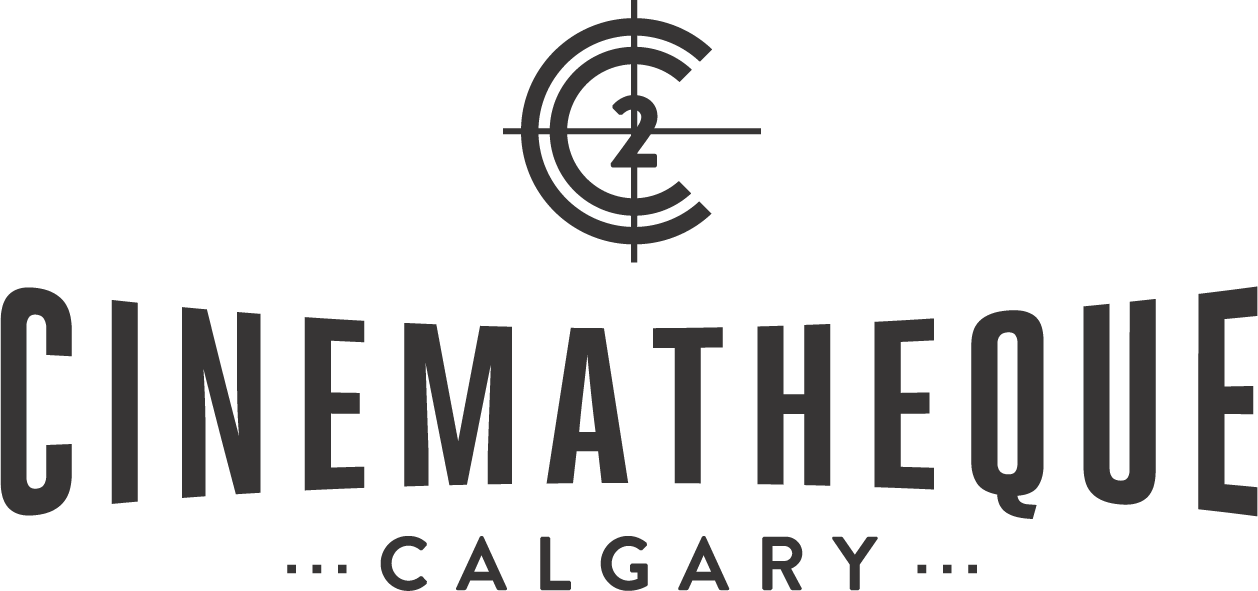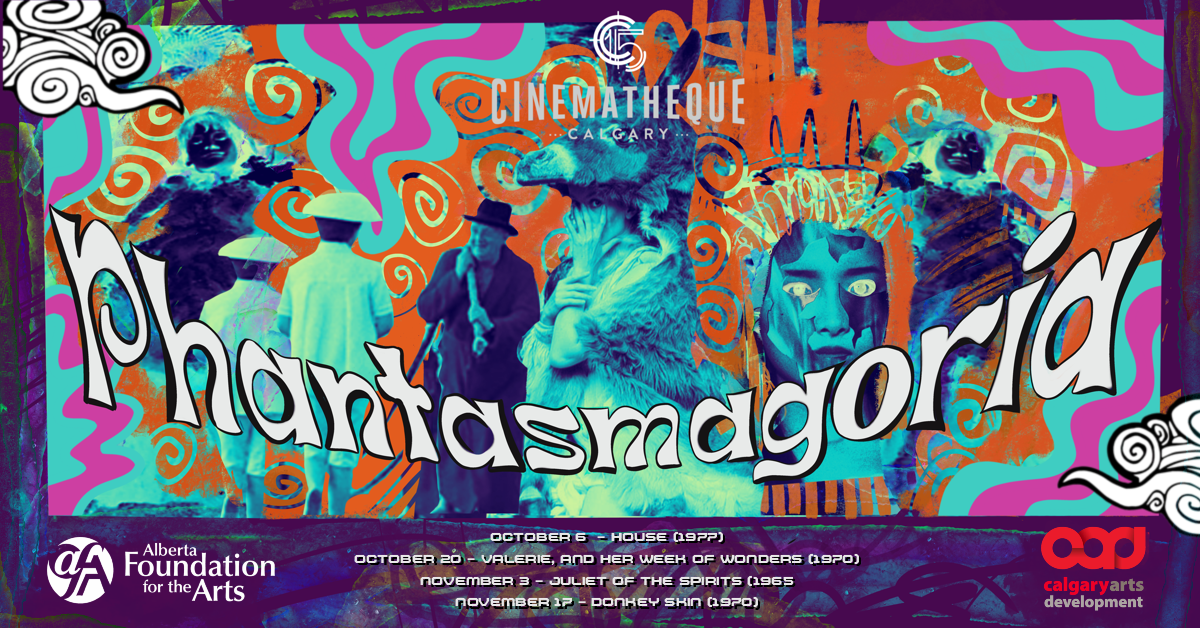Phantasmagoria
When Stanley Kubrick advertised his masterpiece, 2001: A Space Odyssey, as “The Ultimate Trip” in 1968, he was signalling a sign of the times. The 60’s had been a convulsion of social and cultural change, and cinema was no different. Notably, in Europe and Asia, filmmakers, writers, and actors began to provocatively experiment with radical, non-linear ways of presenting film to audiences.
The titles in the Calgary Cinematheque’s Phantasmagoria series are but a brief sample of these experiments. Funny, scary, romantic, and psychedelic, these movies utilize some of the greatest strengths that the motion picture has yet discovered. Exotic images, kaleidoscopic colours, otherworldly sounds and chimeric illusions suggest a primordial, Jungian realm of the senses that only cinema can reveal.
Art by Harvey Nichol.
Series Films
House (1977)
Directed by NOBUHIKO OBAYASHI
OCTOBER 6, 2022
The most berserk comedy-horror film ever made, the feverish House has everything. Malevolent fluffy cats, fingers without hands that play possessed pianos, even a flying head that bites unwary rear ends. Seven girls (with names like Gorgeous, Kung Fu, and Fantasy) go to visit the aunt of one of their group, and quickly encounter poltergeist phenomena pitched somewhere between Suspiria (1977), Jaws (1975), and a slapstick episode of Buffy on acid. Based on Japanese legends of Jikininki (hungry ghosts), House is completely impossible to predict, and may possibly be the most unforgettable movie you’ll ever see.
Valerie, And Her Week Of Wonders (1970)
Directed by Jaromil Jireš
oCTOBER 20, 2022
One of the sublime moments of Czech New Wave Cinema, Valerie, And Her Week of Wonders is both a coming of age story, as well as a surreal, sensual horror film. As teenage Valerie grows into womanhood, she encounters vampires, witches, and various other predators, protected only by the power of her magical earrings. Combining horror, fairy tale, Freudian, and fantastical elements in an earthy brew, Valerie is a heady trip into the ethereal, sexual subconscious.
Juliet of the Spirits (1965)
DIRECTED by federico Fellini
November 3, 2022
Federico Fellini at his frothiest, Juliet of the Spirits was not only the Italian maestro’s first film in colour, it was his first after his well-publicized personal experiment with LSD. To the tune of Nino Rota’s acid cocktail lounge score, a spiritual guru reveals a scandalous truth to housewife Giulietta (the ever charismatic Giulietta Masina), plunging her into a cacophony of spiritual encounters. Swirling with circus-like phantasms, Giulietta’s world is floridly visualized by Fellini (with the help of Phero Ghirardi’s sugary sets, and Gianni de Vincenzo’s eye popping cinematography) to the hilt of psychedelic expressiveness.
Donkey Skin (1970)
Directed by Jacques Demy
November 17, 2022
Who can resist Catherine Deneuve as a fairy tale princess? Jacques Demy’s (The Umbrellas of Cherbourg) semi revisionist fairy tale pops like edible-laced Cristal champagne. Deneuve plays a maiden who utilizes outrageous disguises (a dress the colour of the weather, the skin of an enchanted donkey) to avoid a most unpleasant marriage proposal. That is, until the local handsome prince throws a wrench into her plans. Making excellent use of locations such as the enchanting Chateau de Chambord, and featuring Delphine Seyrig as the most fabulous of fairy godmothers, Demy merges the influence of Jean Cocteau’s Beauty and the Beast with his own glossy musical style to create a dreamlike Grimm’s fable for all ages.








